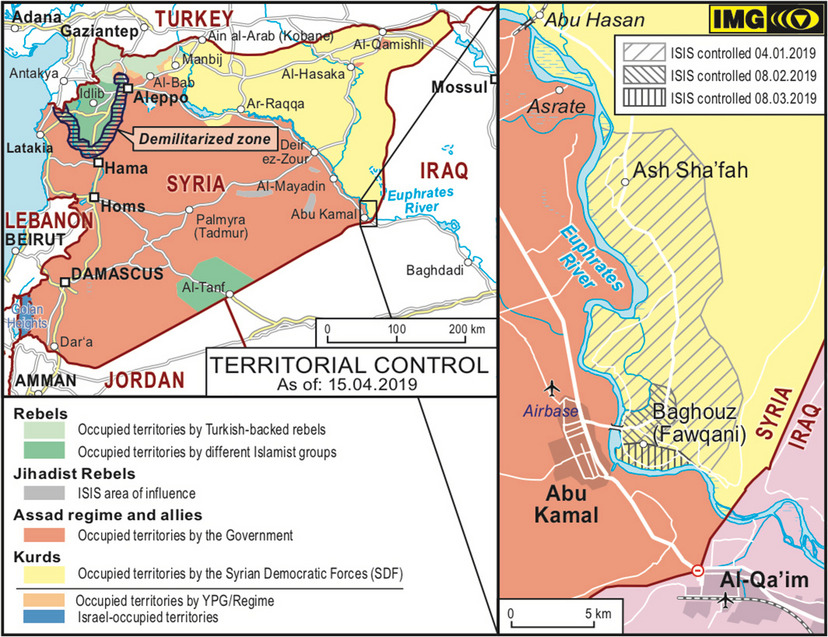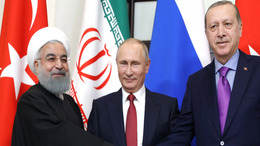And while these EU demands make sense, many of the regional powers affecting events in Syria do not share them. Yet at the same time, these regional powers want to see Europe commit to the financial and technical reconstruction of Syria.
This state of affairs poses an opportunity for the EU to assert its interests through its European Neighbourhood Policy instruments – even if the EU's potential to shape events is constrained by the influence of key actors in the region, namely Russia, Turkey, Iran, Saudi Arabia and Israel. Moreover, Europe’s transatlantic partner, the United States, is withdrawing militarily from eastern Syria since the so-called Islamic State has been driven out. The capricious nature of President Trump’s Middle East policy has also resulted in a shift of responsibility onto Brussels’ shoulders.
“Antagonisms in the EU's Neighbourhood – Overcoming Strategic Deficits with regard to Syria – How the EU Can Demonstrate Resolve and Respond to the Interests of Regional Powers": This new policy brief from the Bertelsmann Stiftung’s “Strategies for the EU Neighbourhood” project explains the new parameters of the Syrian conflict and analyzes the regional policies of Russia, Turkey, Iran, Saudi Arabia, the United States and Israel. The policy brief also provides suggestions as to how the EU and its member states can better assert their interests in the difficult context of their southeastern neighbourhood, and how they can respond more effectively to the Middle East policies of the key states identified above.
The proposals for European commitment in Syria range from meeting minimum criteria for reconstruction aid to an independent and reliable monitoring of investments to taking legal action and prosecuting against war crimes.
In addition, the policy brief recommends that the EU and its foreign ministers reduce the risks of escalation in the broader Middle East by engaging in intensive shuttle diplomacy between Washington, Moscow, Ankara, Tehran, Riyadh and Jerusalem. At the same time, Brussels, Berlin, London and Paris should extend their EU/E-3 diplomacy format to include a member state from central or central eastern Europe and thereby ensure that the interests of more recent EU member states are included.
The Bertelsmann Stiftung’s Eastern Europe expert Miriam Kosmehl and Middle East expert Christian Hanelt collaborated with nine experts on Russia, Turkey, Iran, Saudi Arabia, the United States and Israel, as well as experts on European foreign policy and international relations to author this policy brief.
With its “Strategies for the EU Neighbourhood” project, the Bertelsmann Stiftung’s Europe’s Future programme targets the development of proposals on how the EU can help establish a ring of stable states – from Belarus to Syria to Morocco – in its immediate neighbourhood.
![[Translate to English:] Ein Mann läuft durch eine komplett zerstörte Straße](/fileadmin/files/_processed_/d/e/csm_91467146816969008478_36ccc11324_o_9aa376f8f9.jpg)




![[Translate to English:] Auf dem Bild: Irina Scherbakowa](/fileadmin/files/_processed_/0/2/csm_Irina_Scherbakowa_Lunchtime_2018_St-CC_Original_80454_6907823745.jpg)



